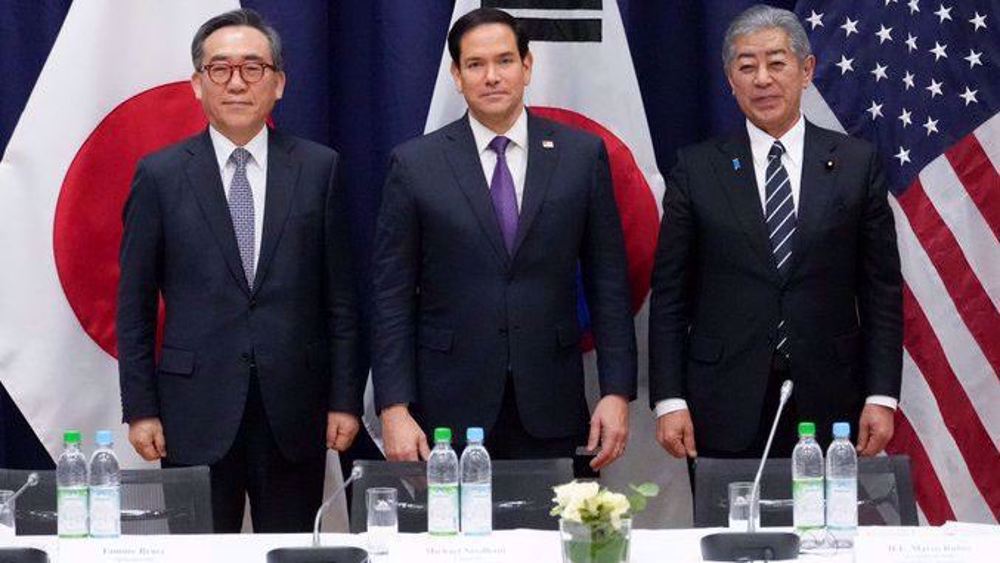Japanese protest against controversial security bills
Thousands of people have taken to the streets across Japan to protest against government’s controversial security bills that would expand the remit of the country's armed forces.
The anti-war demonstrations were held on Sunday in nearly 60 Japanese cities, including the capital Tokyo as well as in Kyoto, Osaka, and Fukuoka.
In Tokyo alone, over 6,000 people, including high school students, rallied against Japanese Prime Minister Shinzo Abe's plans to expand the military.
The marchers were holding banners and placards with anti-war slogans and shouted “No to war!”, “The war is over”, “Give peace a chance!”, and the like.

Demonstrations were mainly organized by various student and youth organizations, including the Students Emergency Action for Liberal Democracy.

The contentious bills, which have aroused a wave of public indignation all over the country, were pre-approved by the lower house of Japan’s parliament on July 16. They broaden the mandate of Japan’s self-defense forces and allow the army to participate in foreign operations in order to “protect the allying countries” for the first time since the World War II.
Opponents to Abe’s administration are concerned that the new bills would undermine seventy years of pacifism as Japan has been bound by a pacifist constitution since 1945.
Abe and his supporters, however, say Japan should increase the extent and power of its army in the face of potential threats from other countries like China and North Korea that are expanding their military and nuclear capabilities.
According to a new poll, nearly 70 percent of the Japanese are against the military policy and its final approval.
The bills now must be passed in the upper house of parliament and Abe's Liberal Democratic Party-led coalition has the two-thirds majority required for their adoption.

US, Japan, S Korea renew calls for ‘complete denuclearisation’ of North Korea

Indigenous rights activists rally on Australia Day to protest British colonization legacy

Colonialist’s monument toppled in Melbourne ahead of Australia Day
Occupied al-Qud archbishop: Palestine will never forget Nasrallah
IRGC begins major Eqtedar drill in eastern Iran
Trump tells Zelensky to secure peace with Russia or risk losing Ukraine
Arrest of Electronic Intifada journalist exposes deep Zionist footprints in Switzerland
Iran, Azerbaijan stress opposition to foreign forces in South Caucasus
VIDEO | Press TV's news headlines
Iranian president wishes health, speedy recovery for Pope Francis
VIDEO | Exhibition of innovation and Iran’s economic future







 This makes it easy to access the Press TV website
This makes it easy to access the Press TV website